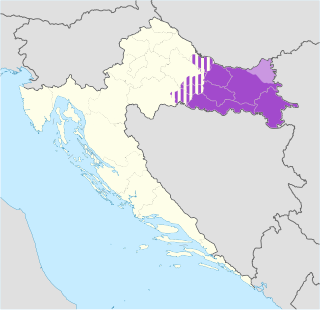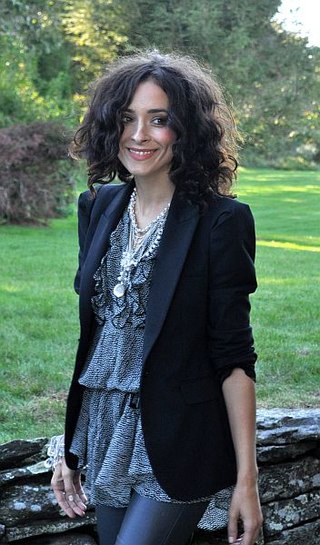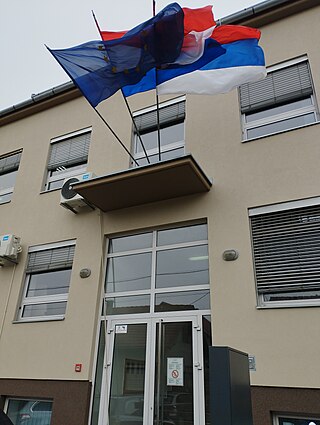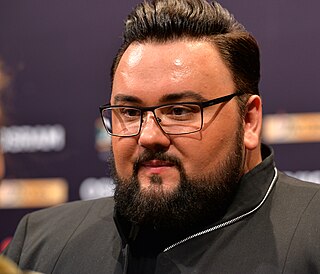Related Research Articles

Slavonia is, with Dalmatia, Croatia proper, and Istria, one of the four historical regions of Croatia. Located in the Pannonian Plain and taking up the east of the country, it roughly corresponds with five Croatian counties: Brod-Posavina, Osijek-Baranja, Požega-Slavonia, Virovitica-Podravina, and Vukovar-Syrmia, although the territory of the counties includes Baranya, and the definition of the western extent of Slavonia as a region varies. The counties cover 12,556 square kilometres or 22.2% of Croatia, inhabited by 806,192—18.8% of Croatia's population. The largest city in the region is Osijek, followed by Slavonski Brod and Vinkovci.

Osijek is the fourth-largest city in Croatia, with a population of 96,848 in 2021. It is the largest city and the economic and cultural centre of the eastern Croatian region of Slavonia, as well as the administrative centre of Osijek-Baranja County. Osijek is on the right bank of the Drava River, 25 km (16 mi) upstream of its confluence with the Danube, at an elevation of 94 m (308 ft).

Vukovar is a city in Croatia, in the eastern regions of Syrmia and Slavonia. It contains Croatia's largest river port, located at the confluence of the Vuka and the Danube. Vukovar is the seat of Vukovar-Syrmia County and the second largest city in the county after Vinkovci. The city's registered population was 22,616 in the 2021 census, with a total of 23,536 in the municipality.
The music of Croatia, like the divisions of the country itself, has two major influences: Central European, present in central and northern parts of the country including Slavonia, and Mediterranean, present in coastal regions of Dalmatia and Istria.
Vesna Pisarović is a Croatian pop and jazz singer.

The culture of Croatia has historically been influenced by Central European, Mediterranean, and Balkan cultures. Croatia's unique culture and identity can be traced back to the historical llyricum. The Croatian language is believed to have been formed in the 6th or 7th century, with the written language present in Glagolitic texts from the 11th century.

Severina Vučković, better known mononymously as Severina, is a Croatian singer-songwriter and actress. In 2006, the Croatian weekly Nacional listed her among the 100 most influential Croats, calling her "the only bona fide Croatian celebrity".
Mate "Mišo" Kovač is a Croatian recording artist. He is the best selling artist from Croatia and former Yugoslavia, with well over 20 million records, cassettes and compact discs sold to date, and is often regarded as one of the most popular musical performers from Southeastern Europe.
Branko Mihaljević was a Croatian composer, writer, journalist and radio editor.
Alka Vuica is a Croatian singer, lyricist and TV presenter.

Antonija Šola is a Croatian musician, singer-songwriter, lyricist, actress and music producer. She is known for playing a main role of "Tina Bauer-Fijan" in first Croatian soap opera Zabranjena ljubav (2004–2008). In addition to her role in the series, she composed and wrote songs, and wrote the lyrics of the series' theme song. After a role in the series, she started her musician career, while also has worked on songs and album with numerous artists of Balkan Region.

Jelena Rozga is a Croatian pop, folk, and electropop singer. Born and raised in Split, Croatia, Rozga was a ballet dancer as a child. She rose to fame in 1996, when she became the lead singer of Magazin, a pop band famous in Croatia. She served as the band's lead singer until 2006, releasing a total of five studio albums. During the ten years, the band released numerous commercially and critically successful singles including "Ginem", "Minut' srca tvog" and "Minus i plus" among others.

Zrinka Cvitešić is a Croatian film, television and theatre actress.
Music Biennale Zagreb is an international festival of contemporary music in Zagreb, Croatia, organized by the Croatian Composers' Society. The Biennale, founded by Milko Kelemen and held every spring of the odd years since 1961, has become one of the most important festivals of contemporary music in Europe.

Croatian Music Institute is the oldest music institution in Croatia. It is the second most important concert hall in Zagreb after the Vatroslav Lisinski Concert Hall.

The Joint Council of Municipalities in Croatia is an elected consultative sui generis body which constitutes a form of cultural self-government of Serbs in the eastern Croatian Podunavlje region. The body was established in the initial aftermath of the Croatian War of Independence as a part of the international community's efforts to peacefully settle the conflict in self-proclaimed Eastern Slavonia, Baranya and Western Syrmia. The establishment of the ZVO was one of the explicit provisions of the Erdut Agreement which called upon the United Nations to establish its UNTAES transitional administration.

Lav Mirski was a Croatian-Jewish conductor.

Jacques Houdek is a Croatian recording artist who represented Croatia in the Eurovision Song Contest 2017 with the song "My Friend". Houdek began his professional solo career in 2000 and has since released many recordings and albums out which 13 have been certified silver, gold, platinum and diamond (once). Houdek is one of the mentors in the Croatian version of the TV talent show The Voice. During show's first season, he mentored the winner Nina Kraljić. Aside from Croatian, he has sung and recorded in English, Italian, German, Spanish, French, Slovene, Macedonian, and Māori language.
Antun Nikolić Tuca Croatian musician, composer, multi-instrumentalist, arranger, music producer, ethnographer, tamburitza virtuoso

Zdenka Kovačiček is a Croatian jazz and rock vocalist. She remains one of the most prominent musicians on the Croatian music scene.
References
- 1 2 "Svoboda, Vera". Croatian Family Lexicon (in Croatian). Zagreb: Miroslav Krleža Lexicographic Institute. 2005.
- 1 2 3 4 5 6 7 8 9 10 11 12 13 Turkalj, Zlatko (1 April 2024). "In memoriam: Vera Svoboda (15. kolovoza 1936. - 1. travnja 2024.)". radio.hrt.hr (in Croatian). Croatian Radio.
- 1 2 "In memoriam – Vera Svoboda (1936. – 2024.)". crorec.net (in Croatian). Croatia Records. 2 April 2024.
- 1 2 3 4 "In memoriam: Vera Svoboda (1936. – 2024.)". hgu.hr (in Croatian). Croatian Musicians Union. 2 April 2024.
- 1 2 Novak, Ante (13 February 2019). "Vera Svoboda: Moja vjera u meni živi od rođenja" [Vera Svoboda: My faith has lived in me since birth]. hkr.hkm.hr (in Croatian). Croatian Catholic Radio.
- ↑ Vrbanić, Vilena (2023). "Muzikalije iz ostavštine Julija Njikoša u Muzeju Slavonije u Osijeku" [Sheet Music From Legacy of Julije Njikoš at Museum of Slavonia in Osijek]. Osječki zbornik (in Croatian). 38: 121–137. ISSN 0473-4882.